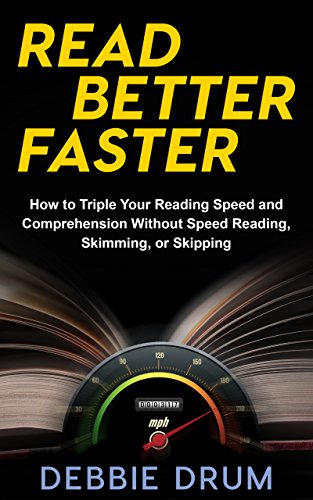The Pleasure of Finding Things Out is a great collection of Richard Feynman’s finest short plays from interviews and addresses to lectures and printed posts. It presents an personal and fascinating view of a very unique life in science. This book will fascinate anyone interested in Feynman or science in general. Feynman’s followers would be inspired by his humor and insightful knowledge of the natural world and human nature.
Highly reviewed knowledge books
Lexinum helps you find books to improve your life. We analyse user reviews and select for you highly reviewed books in knowledge and other topics.
If I told you in the afternoon one can read a whole novel, would you trust me? Old methods of learning bind us off, and that’s why so many people don’t enjoy reading. Yet once you know the right reading techniques fitting your personality, reading can be easier, more enjoyable, and more rewarding than ever before. This book incorporates the best lessons from speed reading, psychology, and new technology to help you to read more easily and understand more than you ever thought possible. If you have not been reading many books because of boredom and disappointment, this quick and easy reading will change your life.
A interesting study of the development of information technology brings readers on a stimulating journey through the development of information era. Today’s data boom might feel like a modern trend, but the issue of information overload is not new and appears first quite a long time ago. Human beings gathered, preserved and arranged knowledge long before the invention of computers: from Ice Age taxonomies to Sumerian records, Greek libraries to monasteries of the Dark Age. Now, as our old systems fail to deal with what programmer Richard Saul Wurman called a data tsunami, we are standing at a cliff. Alex Wright weaves a fascinating tale that incorporates apparently far-flung subjects such as insect colonies, Stone Age art, medieval monasteries, Renaissance encyclopedias, early electronic networks, and the internet. To draw a startling conclusion, he brings these strands together, implying that the future of the digital age lies deep in our past.
A groundbreaking and thorough analysis of the essence and advancement of knowledge by one of the greatest thinkers of today. David Deutsch, an award-winning pioneer in the area of quantum computation, argues, in this important new book, that explanations play a central role in the universe. According to Deutsch, this flood of ever-improving explanations has unlimited reach: we are subject only to the laws of physics, and they place no upper limit to what we can actually perceive, regulate, or do. In his previous work, The Fabric of Reality, Deutsch explains the four strongest branches of current science revealing a single structure of reality. He extends this philosophy in this new book to a wide variety of topics and unanswered questions, from innovation and free will to the nature and future of the human race. The Beginning of Infinity is a revolutionary book that will become a masterpiece of its kind, packed with fascinating new ideas about human selection, hope, scientific theory, and the evolution of culture.



